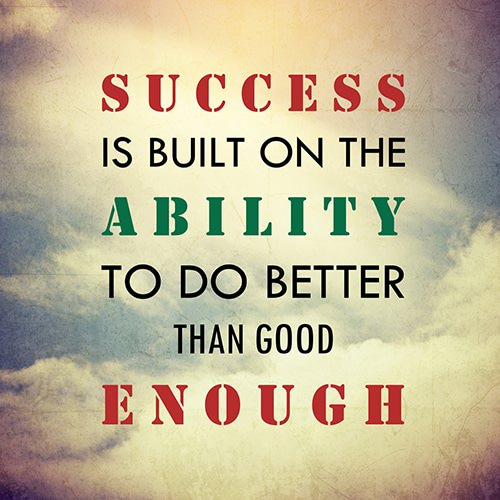“Be a yardstick of quality. Some people aren’t used to an environment where excellence is expected.” – Steve Jobs
What separates “good” people from “great” people in the business world today?
In my opinion, it’s consistent quality that’s delivered, not promised. Regardless of how big or small the task at hand may be, “Quality is never an accident. It is always the result of intelligent effort.” (John Ruskin)

The other day I overheard a high-level executive tell one of their creative designers, “Not everything has to be a masterpiece. We need to get things out the door and that’s what matters.”
I understand that a deadline is a deadline. I spent many years as a Graphic Designer for a high-end lifestyle magazine in New Jersey. For anyone who’s ever worked in the publishing industry before, you know the strict deadlines that exist and the long hours sometimes necessary to meet them.
However, at no time during my tenure would my Creative Director have tolerated me telling him, “not everything has to be a masterpiece” when I found myself up against a deadline. Why? Because the customer was expecting a quality product, and regardless of the constraints, that expectation did not and should not change. No excuses.
Gary Hirshberg once said, “Quality, quality, quality: never waver from it, even when you don’t see how you can afford to keep it up. When you compromise, you become a commodity and then you die.”
Apparently, the high-level executive I referenced above doesn’t understand that quality is what sets you apart in the market, and by encouraging your employees to do their best, you ensure the best results for your customers.
As a leader, your role is to motivate your employees to develop and refine their skills – both personally and professionally. To continually challenge them to avoid complacency and mediocrity, which ultimately benefits the entire organization.
In an organization that doesn’t fully support quality, nothing needs to be a “masterpiece,” and a measure of success becomes how many jobs went out the door on time, not what was the quality of what we’re producing.
That’s a dangerous game to play in today’s competitive marketplace – contributing to a lackluster workforce who never strives for anything better than just mediocre.
Aristotle believed, “Quality is not an act, it is a habit.” And it’s a habit everyone should adopt.